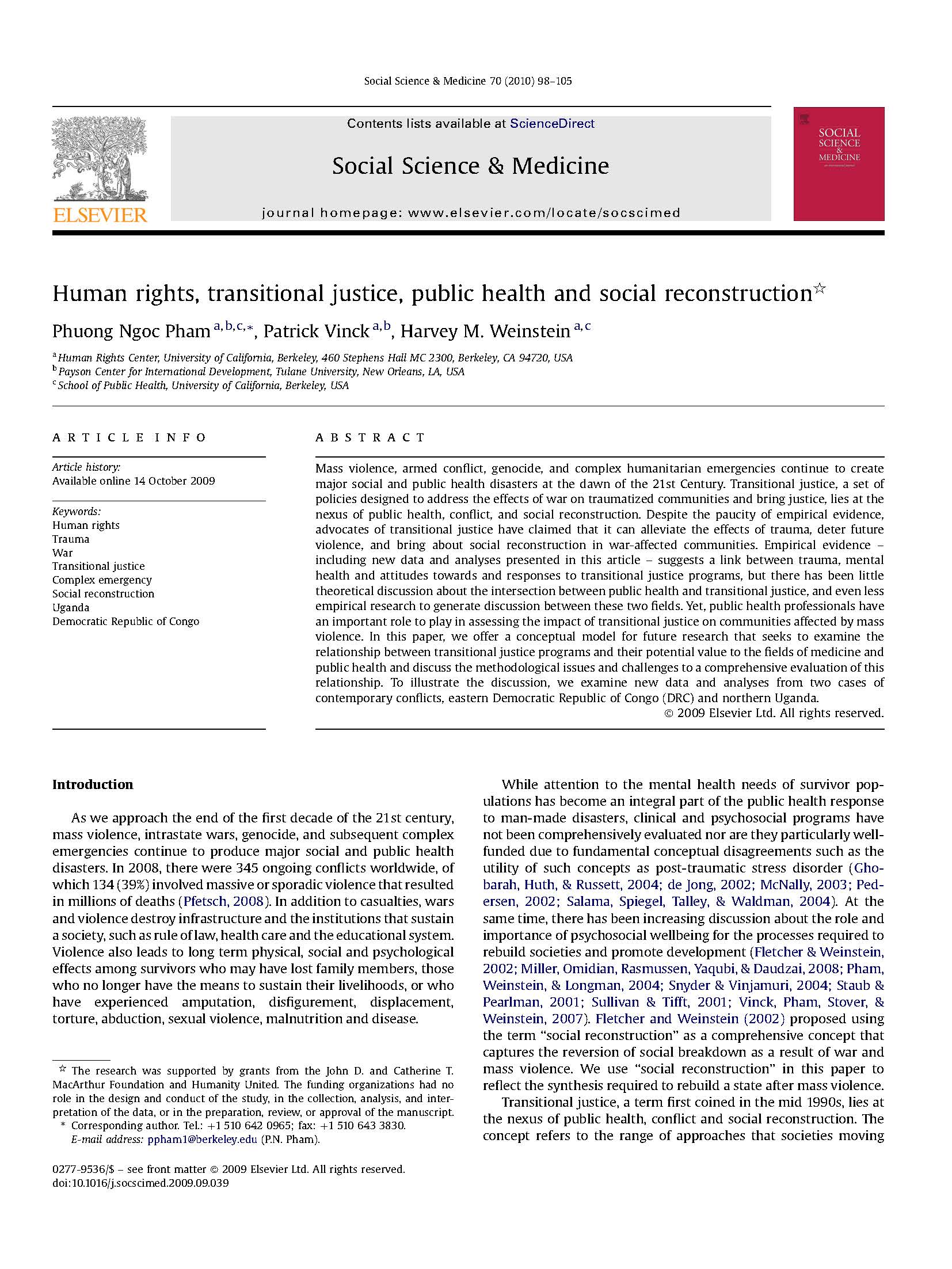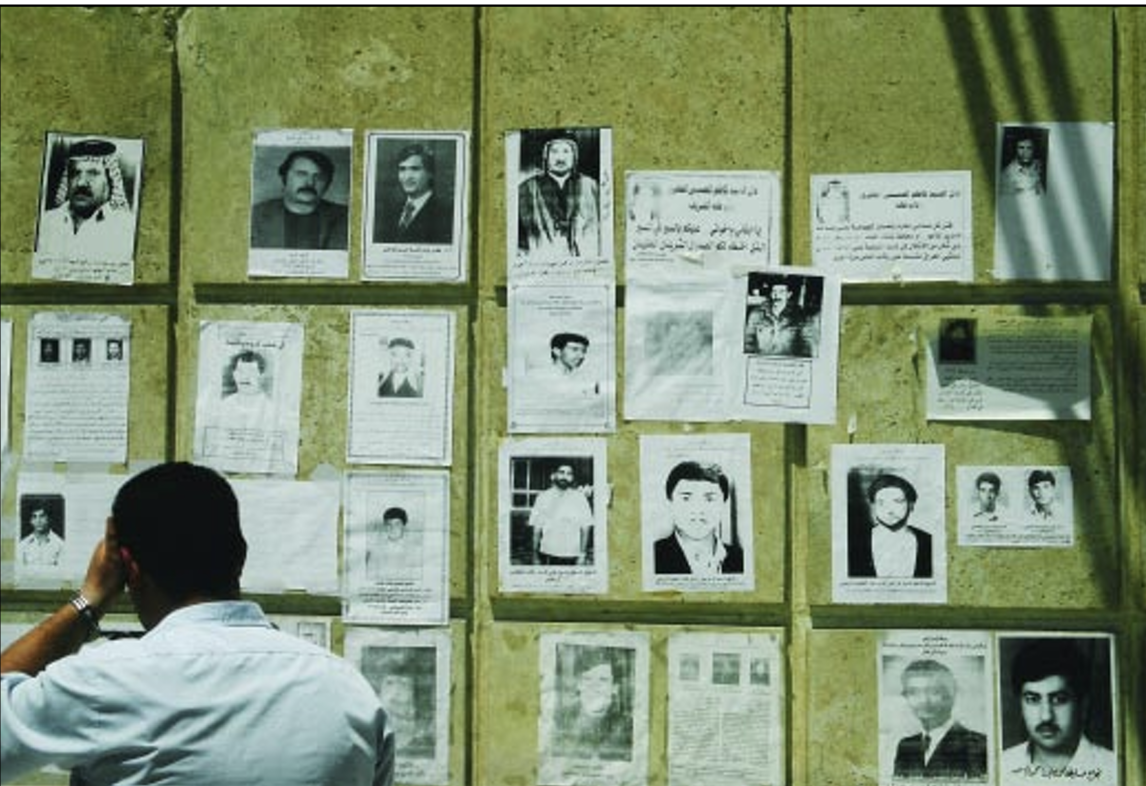Human Rights, Transitional Justice, Public Health, and Social Reconstruction
Summary
Mass violence, armed conflict, genocide, and complex humanitarian emergencies continue to create major social and public health disasters at the dawn of the 21st Century. Transitional justice, a set of policies designed to address the effects of war on traumatized communities and bring justice, lies at the nexus of public health, conflict, and social reconstruction. Despite the paucity of empirical evidence, advocates of transitional justice have claimed that it can alleviate the effects of trauma, deter future violence, and bring about social reconstruction in war-affected communities. Empirical evidence–including new data and analyses presented in this article–suggests a link between trauma, mental health and attitudes towards and responses to transitional justice programs, but there has been little theoretical discussion about the intersection between public health and transitional justice, and even less empirical research to generate discussion between these two fields. Yet, public health professionals have an important role to play in assessing the impact of transitional justice on communities affected by mass violence. In this paper, we offer a conceptual model for future research that seeks to examine the relationship between transitional justice programs and their potential value to the fields of medicine and public health and discuss the methodological issues and challenges to a comprehensive evaluation of this relationship. To illustrate the discussion, we examine new data and analyses from two cases of contemporary conflicts, eastern Democratic Republic of Congo (DRC) and northern Uganda.

